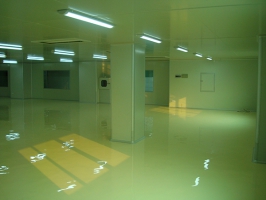Four major factors lead to infection in clean operating rooms
Hospitals are well-known as places for treating illnesses and saving lives. And the hospital operating room is a very important place to perform surgeries on people. Nowadays, many operating rooms are clean operating rooms to avoid infection of patients' wounds, which may lead to surgical failure. However, sometimes clean operating rooms can still be infected, which requires caution and must be treated. What factors can cause infection in a clean operating room?
1. Operating room planning. Clean operating rooms require scientific planning and planning for different departments' surgeries, such as colorectal surgery, obstetrics and gynecology, and general surgery, which generally use Class 10000 clean operating rooms. For surgeries such as neurosurgery, orthopedics, and urology, Class 1000 standard clean operating rooms are used. For surgeries such as joint replacement surgery, neurosurgery, cardiology, and ophthalmology, Class 100 special clean operating rooms are required.
2. Medical staff. Medical staff are important implementers of surgery and may come into contact with dangerous cutting areas. Therefore, medical staff should perform standardized surgical hand brushing and aseptic techniques to avoid nosocomial infections caused by pathogenic bacteria in the medical staff or operating room environment.

3. Surgical patients. The patient has complications such as diabetes or infection focus, and the surgical site is close to the infection focus or bacteria will disperse in the body through blood circulation or lymph circulation. Together, the instruments used by the operator may be contaminated with bacteria, which may cause infection if they are not replaced in time.
4. Air pollution. The air quality management of the operating room is a dynamic process. In addition to regularly cleaning the operating room completely, timely cleaning and maintenance should also be carried out before and after surgery, and the airborne bacteria value should be measured. If the airborne bacteria in the air reach 1000-1800cfu/m, the postoperative infection rate will significantly increase.
These factors can all lead to infection in clean operating rooms, and everyone must pay attention because operating rooms cannot be infected. Mild cases may result in surgical failure, while severe cases may put the patient's life at risk.
The article originates from Guangdong Purification Engineering: http://www.jmyujie.com/
-
07-01
Guangdong Purification Engineering: What are the cleanroom construction companies?
Our cleanroom needs to go through several processes to be built. In the early stage, we need to start with the design, followed by the specific construction stage, and then the acceptance and other pr
-
12-19
A Brief Discussion on the Development Factors and Variables of Hunan Purification Engineering
Purification engineering can effectively utilize the six cost element variables mentioned below, provide selectable planning plans, improve fundamental purification engineering planning and standards,
-
11-27
How to effectively utilize the air conditioning system in the purification workshop of Hunan Purification Engineering Analysis
The energy consumption of HVAC system accounts for about 60% of building energy consumption, so energy conservation of HVAC is particularly important in building energy conservation. The purification
-
11-20
How to Reasonably Control and Mediate the Cost of Hunan Purification Engineering Analysis
When planning the manufacturing of purification engineering, how to achieve maximum benefits with minimal investment and complete maximum output has always been a highly valued issue for purification

